Are you looking to get rid of ants in your RV? I’ve been there and know why protecting your RV from unwanted guests is essential. Depending on where they establish their nests, they can cause damage to structures, property, equipment, and appliances. Some people can even be allergic to ant stings and, in severe circumstances, may have anaphylactic shock.
As an experienced RV enthusiast who loves exploring the great outdoors, I know that ants can quickly turn your peaceful retreat into a battleground. I’ve researched and compiled the best methods to combat these tiny invaders.
In this guide, I’ll walk you through practical steps to address the ant problem in your RV. From sealing entry points to maintaining cleanliness, I’ll provide you with the knowledge and tools to eliminate ants and prevent future infestations. So let’s get started discovering how to live ant-free!
Why Are There Ants In My RV?
Ants are drawn to food and favorable environments so you may encounter them in your RV. Ants may easily access RVs if there are cracks or holes in windows, doors, or vents. Food crumbs or spills within the RV may also attract ants seeking a food source.
Ants are skilled at finding their way into small spaces. Regularly clean and disinfect your RV, giving special attention to areas where food is prepared or consumed. Seal any holes or openings ants can use, such as cracks in walls or windows. Food should be kept in airtight containers, and spills should be cleaned immediately.
15 Ways To Get Rid Of Ants In Your Rv
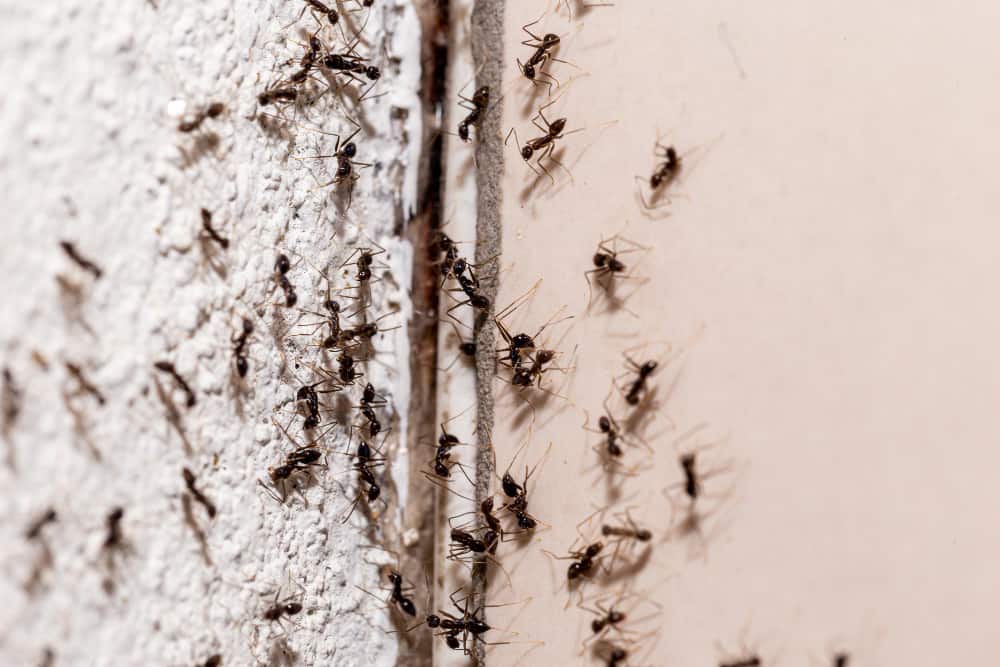
Seal Entry Points
Inspect your RV for gaps, cracks, or holes that ants can use as entry points. Take special care around windows, vents, and utility hookups. Use caulk or silicone to seal these openings, preventing ants from finding their way inside.
Cinnamon Powder.
Ants dislike the strong smell of cinnamon, so sprinkling cinnamon powder in areas where you have seen ant activity can help deter them. Identify the entry points where ants enter your RV, such as cracks or openings.
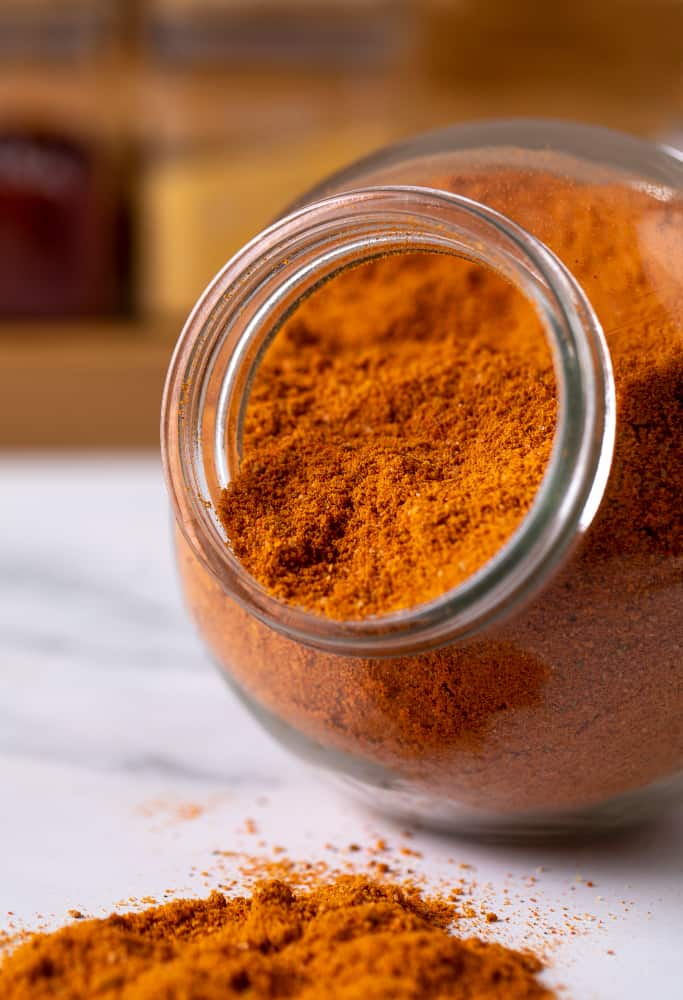
Sprinkle a generous amount of cinnamon powder along these entry points and any areas where you’ve seen ants trailing. The strong scent of cinnamon acts as a natural repellent and can discourage ants from entering your RV.
Ant Baits and Traps
Set up ant baits or traps near ant trails or areas of activity. These baits attract ants with a tempting food source that contains a slow-acting poison. The ants carry the poisoned bait back to their colony, where it spreads and eliminates the entire ant population.
Natural Repellents
Certain scents are known to repel ants. Sprinkle cinnamon powder near entry points or areas where ants are frequently seen. You can soak cotton balls in peppermint oil and arrange them appropriately. Citrus peels, such as those from oranges or lemons, can be left near ant trails to keep them away.

Keep Your RV Clean
Maintaining a clean and tidy RV is crucial in preventing ant infestations. Regularly clean up food crumbs, spills, and other food debris that can attract ants. Vacuum and sweep the floors, wipe down surfaces, and empty trash regularly. A clean RV is less inviting to ants searching for food sources.
Airtight Food Storage
Ants are attracted to food smells, so storing all food items in airtight containers is essential. Transfer dry goods, snacks, cereals, and pet food into sealed containers to prevent ants from accessing them. This simple step helps eliminate potential food sources and discourages ants from entering your RV.
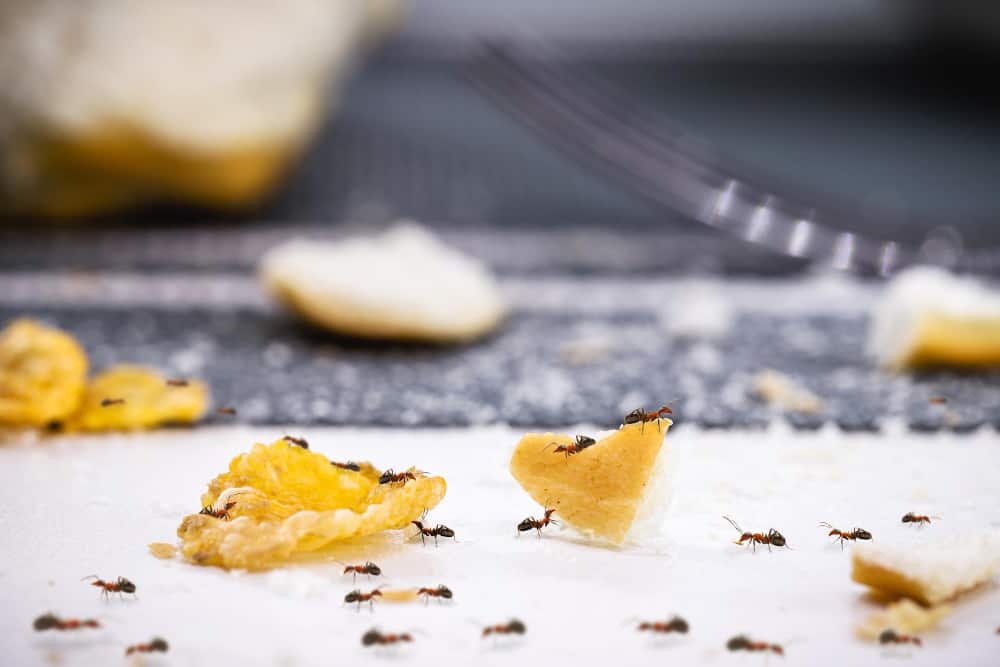
Diatomaceous Earth
Food-grade diatomaceous earth is a natural and safe option to combat ants. Apply the diatomaceous earth along their trails—the microscopic particles in diatomaceous earth damage ants’ exoskeletons, leading to dehydration and eventual death.
Essential Oils
Certain essential oils have powerful ant-repellent properties. You can dilute tea tree, lavender, or peppermint oil with water in a spray bottle. Spray this mixture along ant trails or areas of infestation. These oils’ strong aroma is a deterrent and helps keep ants away.
Baking Soda and Powdered Sugar
Combine equal parts baking soda and powdered sugar and place them in shallow containers near ant trails or areas of activity. The sugar attracts ants, while the baking soda disrupts their digestive system. As a result, the ants die off gradually.
Dish Soap and Water
To make a soapy water solution, combine dish soap and water. When you spot ants in your RV, spray the solution directly on them, and the soap disrupts their exoskeleton, causing dehydration and eventual death. This method eliminates ants on contact.
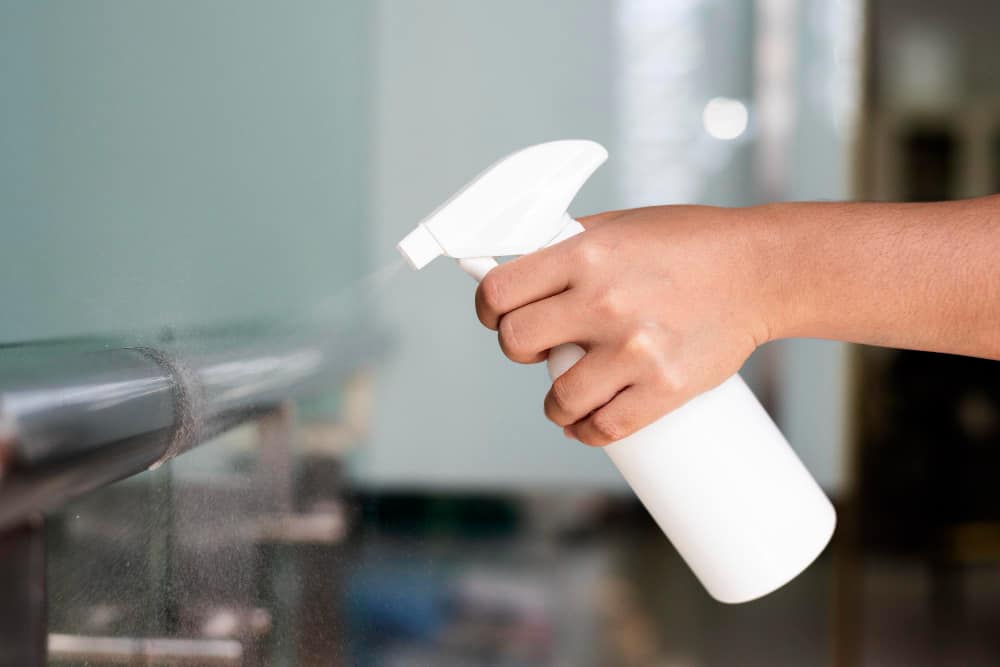
Borax and Sugar
Combine equal parts of borax and sugar to create a bait solution. Place small amounts of this mixture in areas frequented by ants, near their trails, or ant nests. The sugar acts as bait to attract the ants, while the borax acts as a slow-acting poison that they carry back to the colony, eventually eradicating it.
Cucumber Peels
Place cucumber peels near ant entry points or along their trails. Cucumbers’ pungent aroma is a natural deterrent. To keep the effect of the peels potent, replace them regularly.
Coffee Grounds
Spread discarded coffee grounds outside your RV or near ant nests. The strong scent and texture of coffee grounds disrupt ants’ trails and make it difficult for them to navigate. Coffee grounds can also be a natural barrier against ants in your RV.
White Vinegar Spray
Spray white vinegar directly on ants or along their trails using a spray bottle. The pungent smell of vinegar disrupts their scent, making navigation more difficult. Repeat the application as needed to keep ants at bay.
Professional Pest Control
Professional pest control services may be required if your ant infestation persists or becomes unmanageable despite your attempts. Pest control professionals have the expertise, experience, and specialized products to effectively eliminate ants from your RV. They can assess the situation, identify the ant species, and apply appropriate treatments to address the infestation.
Since each RV and ant infestation differs, you may need to combine numerous tactics to discover the most effective treatment.
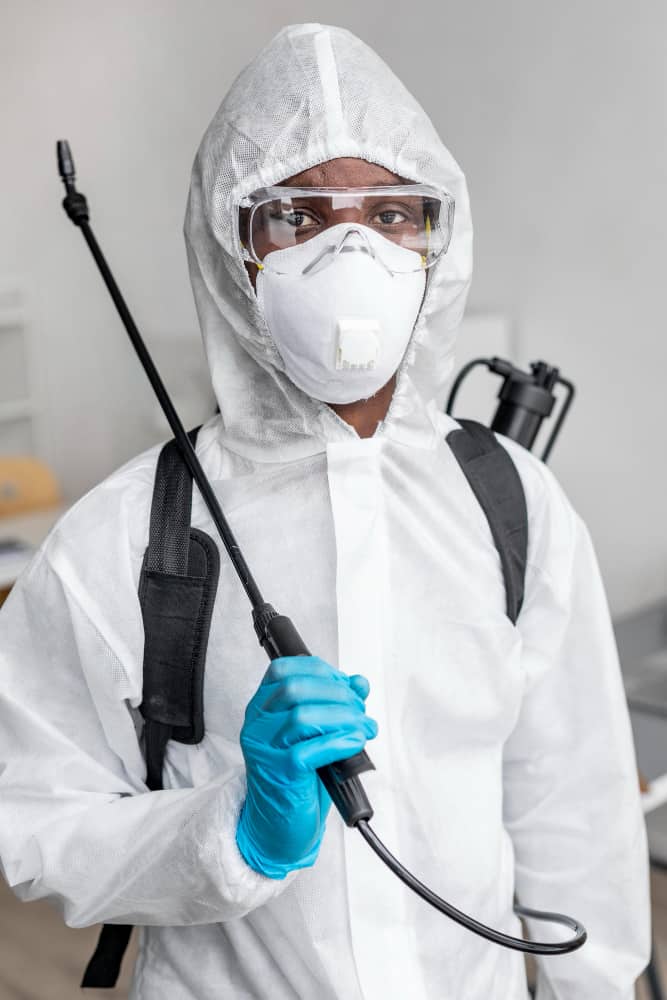
Pros And Cons Of Using Each Of These Methods
Here’s a table that summarises the advantages and disadvantages of each method for getting rid of ants in your RV:
| Method | Pros | Cons |
| Seal Entry Points | Prevents ants from entering your RV | Requires thorough inspection and sealing of potential entry points |
| Vinegar and Water Solution | Disrupts ant trails and scent trails | It may require frequent reapplication |
| Ant Baits and Traps | It takes time for the bait to be effective | It takes time for the ants to be eliminated |
| Natural Repellents | A safe and natural solution | It can be messy and needs reapplication after rain or cleaning |
| Keep Your RV Clean | Eliminates food sources for ants | Requires consistent cleaning and maintenance |
| Airtight Food Storage | Prevents ants from accessing food | Requires transferring food to airtight containers |
| Diatomaceous Earth | Natural and safe for humans | It may require frequent reapplication |
| Essential Oils | Slow-acting poison eliminates the entire colony | Pleasant Aroma and natural repellent |
| Baking Soda and Powdered Sugar | Simple and inexpensive solution | The temporary vinegar smell may linger |
| Dish Soap and Water | Kills ants on contact | Not suitable for large infestations |
| Borax and Sugar | The temporary vinegar smell may linger | Should be placed out of reach of pets and children |
| Cucumber Peels | Natural deterrent | Requires regular replacement of peels |
| Coffee Grounds | Natural barrier and repellent | May need frequent reapplication and replacement |
| White Vinegar Spray | Disrupts ant trails and scent trails | Temporary vinegar smell may linger |
| Professional Pest Control | Expertise and specialized treatment | Comparatively higher cost and may require multiple visits to eliminate the infestation |
Remember that each method’s effectiveness can vary depending on the severity of the ant infestation and the specific circumstances of your RV.
The Best Way To Get Rid Of Ants In Your RV
The best method for getting rid of ants in your RV combines several approaches. While each method has advantages and disadvantages, using a multi-pronged approach can increase the effectiveness of ant control.
Here’s my verdict:
- Start By Sealing Entry Points: This is crucial to prevent ants from entering your RV in the first place, and it’s a proactive step that can significantly reduce the likelihood of an infestation.
- Use Ant Baits And Traps: These effectively target and eliminate the entire ant colony. Place them near ant trails and common entry points to attract and eradicate ants.
- Keep Your Rv Clean And Practice Proper Food Storage: This helps eliminate food sources for ants, making your RV less attractive to them. Regular cleaning and storing food in airtight containers can discourage ant infestations.
- Consider Natural Repellents: Natural repellents like cinnamon, peppermint oil, or citrus peels can be used as additional deterrents. They provide a safe and environmentally friendly solution to repel ants.
Use Professional Pest Control: When dealing with a severe infestation, professional pest control may be necessary. Pest control experts have the expertise and specialized treatments to eliminate the ant problem effectively.
Conclusion
Dealing with ants in your RV can be a nuisance, but with the right method, you can eliminate them and avoid repeat infestations. The following are the key takeaways:
- Take immediate action: When you notice ants in your RV, take steps to prevent the issue from worsening.
- Seal entry points: Thoroughly inspect your RV for gaps or openings and seal them to prevent ants from entering.
- Use a combination of methods: Implement a multi-pronged approach using ant baits, traps, and natural repellents and practicing good hygiene and food storage.
- Regular cleaning: Keep your RV clean and food debris-free to discourage ants from being attracted to your living space.
Stay proactive: Regularly inspect your RV for signs of ants and take preventive measures to minimize the risk of infestations.
By maintaining cleanliness, sealing entry points, and staying vigilant, you can enjoy your camping adventures without the unwelcome company of ants. Safe travels!
Frequently Asked Questions (FAQs)
Here are some common questions related to getting rid of ants in an RV:
1. Are ants in an RV harmful?
A: While ants are generally not harmful, they can be a nuisance and contaminate food. Additionally, certain ant species, like carpenter ants, can cause structural damage to your RV if left unchecked.
2: How long does it take to get rid of ants in an RV?
A: The amount of time it takes to get rid of ants in your RV is determined by the severity of the infestation and the effectiveness of the remedies used. It may take many days to even weeks to completely exterminate the ants.
3: Can I use chemical insecticides in my RV?
A: Using chemical insecticides inside your RV is generally not recommended due to the confined space and potential health risks. However, natural and eco-friendly alternatives can effectively control ants without harming you or your environment.
4: How can I prevent ants from returning to my RV?
A: To prevent ants from coming back, it’s essential to maintain good hygiene, seal entry points, and practice proper food storage. Regularly inspect your RV for any signs of ants and take preventive measures such as using natural repellents and keeping the interior clean and free of food debris.
5: What if none of the methods work to eliminate ants in my RV?
A: If you’ve tried everything and still have an ant infestation, contact a professional pest control company specializing in RVs. They can assess the situation and recommend solutions to eliminate the ants effectively.

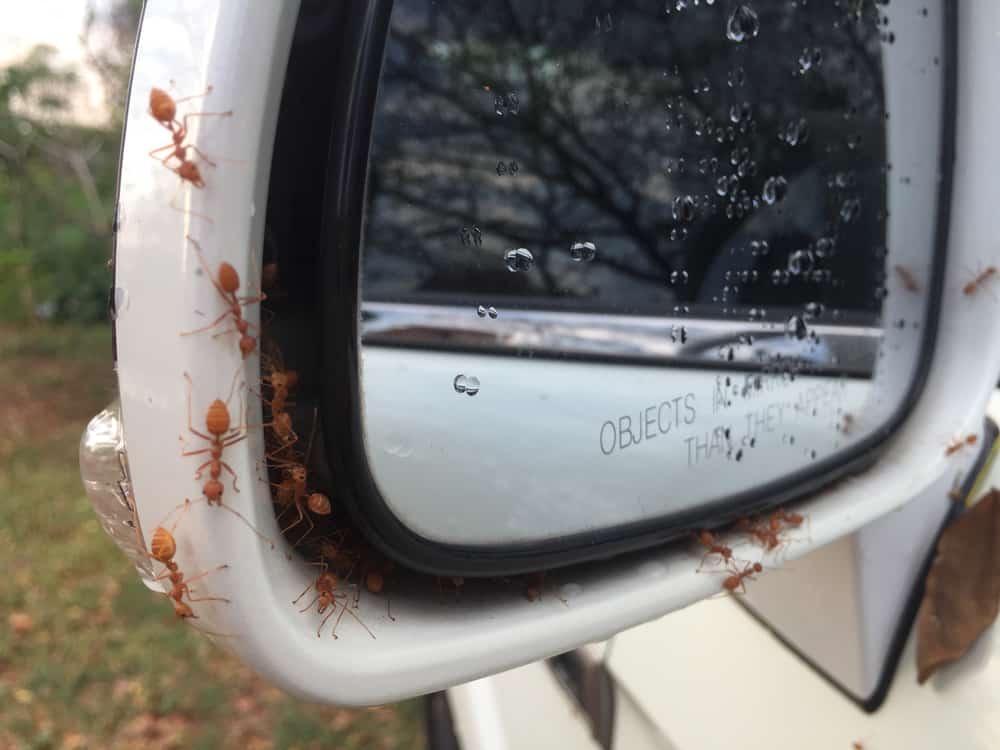


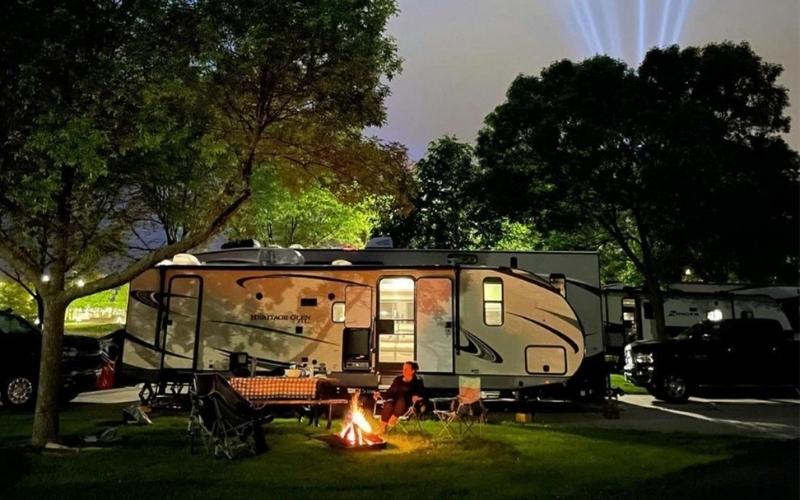

![8 Best Camper Van Options for Camper Conversion in [currentyear] 12 Best Van for a Camper Conversion](https://www.rvingknowhow.com/wp-content/uploads/2020/07/Best-Van-for-a-Camper-Conversion.jpg)